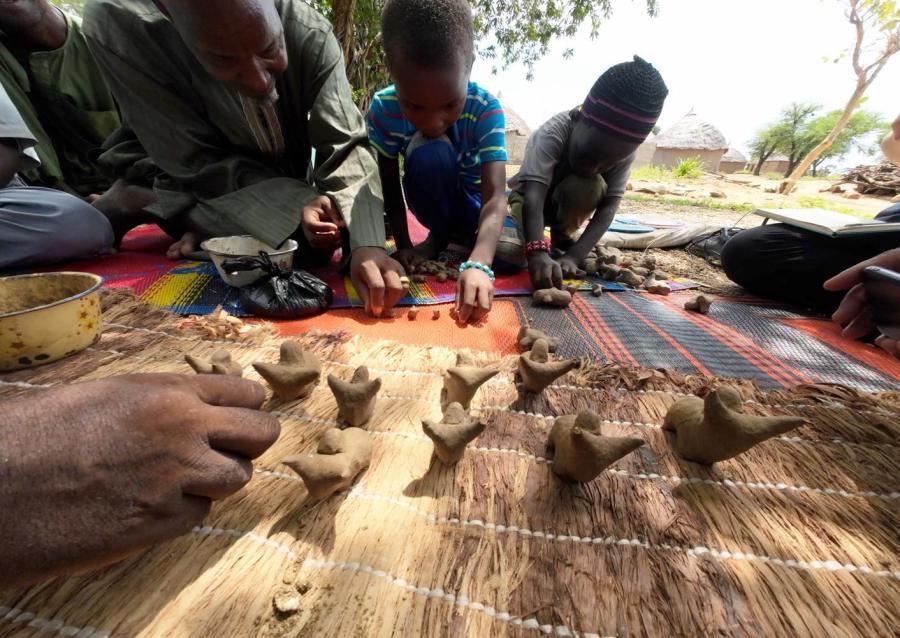
On January 18, 2016, Niger’s human rights record was reviewed by the United Nations Human Rights Council as part of the second cycle of the Universal Periodic Review (UPR) process. This mechanism emerged from the 2005 UN reform process and periodically examines the human rights performance of all 193 UN Member States. It is intended to complement the work of other human rights mechanisms, including the UN human rights treaty bodies. This is the first international human rights mechanism to address all countries and all human rights.
The UPR is an opportunity to report on the implementation of certain recommendations as well as the general state of human rights in the country subject to review. The process stresses dialogue and a sharing of knowledge on both local and global levels. There are five phases of participation in the Universal Periodic Review; Preparation, Interaction, Consideration, Adoption, and Implementation. In total, these five phases amount to a 24-month campaign that can educate, engage, and empower Indigenous Peoples to connect issues at the grassroots level with global governmental responsibility based on recommendations drafted in their own communities and countries.
During Niger’s review, several recommendations were made pertaining to Indigenous Peoples. These recommendations affect the Indigenous peoples of the Peul and Tuareg, which each amount to approximately one million people, and the Toubou, who number to about 200.000. Many of these peoples are pastoralists and live fully or semi-nomadically. The Nigerien Pastoral Code, adopted in 2010, aims to secure land and protect the cultures of pastoralists. However land grabs, extractive industries, and an unorganized influx of refugee threaten Indigenous cultures and rights. Although the creation of the Pastoral Code successfully included the voices of Indigenous communities, its implementation has been severely delayed. The lack of action has furthered the erosion of Indigenous rights, which has already resulted in violence. As Niger is facing consequences of climate change and global instability, the rights of Indigenous Peoples continue to be uncertain.
Cultural Survival is one of the 14 organizations that submitted a stakeholder report, focusing on Indigenous Peoples’ rights, regarding the recommendations from the previous cycle of the UPR. Second cycle recommendations resonate with a majority of the recommendations made by Cultural Survival.
The recommendations below did not enjoy the support of Niger and were not accepted but only noted:
To internalize and enforce the human rights instruments Niger has ratified, and create independent institutions to monitor its implementation (recommended by Sierra Leone, Burkina Faso, Afghanistan, Costa Rica).
- To further its commitment to gender equality and the equal rights of women and children, and prioritizing the abolition of Wahaya, a practice that disproportionately affects Indigenous women (Ukraine, Spain, Uruguay, Kingdom of Great Britain and Northern Ireland).
- To improve the protection of Indigenous land rights by implementing and enforcing the Pastoral Code (France, Denmark).
- To improve the access of Indigenous peoples to proper and culturally appropriate healthcare and education (Egypt, Algeria).
These recommendations are given to encourage the government to improve their human rights records, and to provide the opportunity for citizens to set up specific goals. These reviews provide the tools and information to continue to advocate for change and to hold, in this case, Niger, accountable to its commitment to human rights.
A significant recommendation that was not accepted by Niger during this UPR cycle was;
- To ensure the participation of Indigenous peoples in political decision-making and their equal representation in the governance of the country (Ukraine).
There are many different ways in which civil society, both Indigenous and non-Indigenous, can use this information to strengthen commitment to human rights and hold their governments accountable in implementing UPR recommendations.
By publicizing the recommendations and commitments made by the country involved, and raising awareness of the envisioned benchmarks, civil society can make the government accountable to its citizens, as well as increase the participation of Indigenous and other marginalized citizens in the process of creating, assessing, and evaluating these recommendations. This is possible through radio shows, press releases, publications, speaker events, festivals, email blasts, social media campaigns, and community organizing as examples.
- To become a part of the implementation of the recommendations. To ensure the sustainability and success of these recommendations Indigenous citizens and their organizations need to part of or lead the implementation. This is possible through advocating for transparency, inclusion, and creating awareness and accountability. As the inclusion of Indigenous voices is in itself a recommendation, it is important to hold the country accountable.
Besides implementing recommendations, Indigenous citizens and their organizations should also be part of monitoring, evaluating, and reporting on the implementation of these recommendations. One way of vocalizing Indigenous concerns is through presenting at the Human Rights Council, which convenes three times a year.
Civil society groups and local organizations can read UPR Info’s “Civil Society Follow Up Kit” to learn more about how to implement UPR recommendations on the ground in their country.
Ultimately, the UPR process is an opportunity for Indigenous communities to vocalize their concerns and experiences, create action plans, and ensure implementation and accountability.

